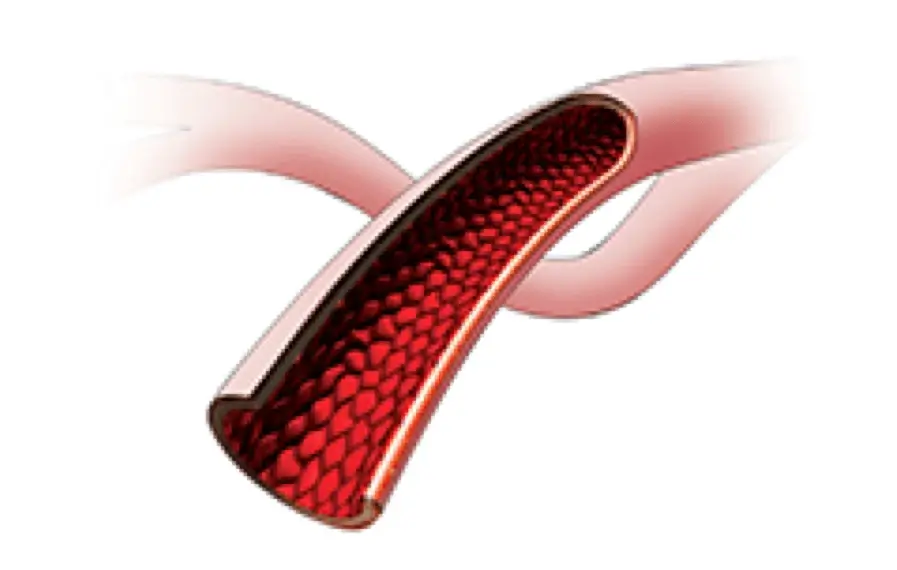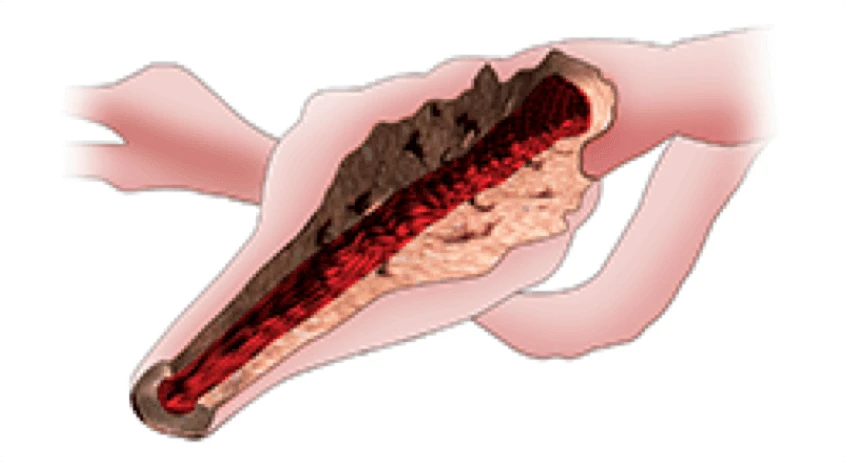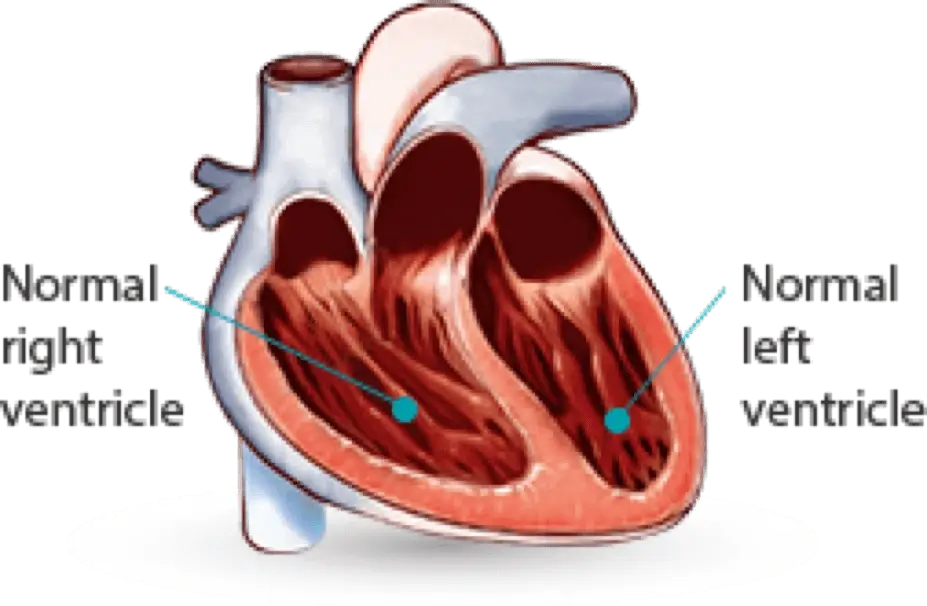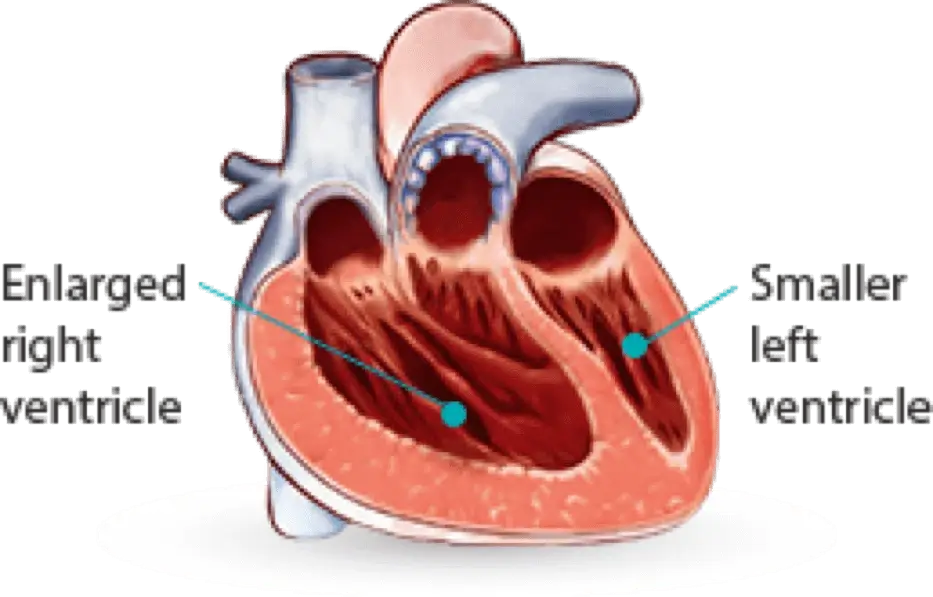PAH: A Closer Look
Pulmonary arterial hypertension (PAH, WHO Group 1) is high blood pressure in the arteries of your lungs. PAH is a chronic and progressive disease. This means that over time, PAH will get worse, and it may limit your physical activities. You play an important role in your care. By actively monitoring your symptoms and your ability to perform day-to-day activities, you can help your healthcare team identify signs of disease progression, which can be important in developing a treatment plan that meets your needs. Learn about the benefits of OPSUMIT® (macitentan).
How does PAH affect your heart and the arteries of your lungs?
PAH can make it difficult for blood to flow through your lungs. As a result, your heart must work harder than normal to pump blood through the arteries of your lungs. Over time, this can cause the muscles of your heart to thicken. This can make it more difficult for your heart to pump blood to your body.
Healthy artery

Artery thickened as a result of PAH

Healthy heart

Heart with PAH

What can cause PAH?
PAH is a rare disease, and not all causes are known. A number of things can cause PAH. These include inherited genetic conditions, other diseases, and outside factors. There are also cases where the cause of PAH is unknown.
While PAH can affect people at any age, the average patient is diagnosed in their late 40s. Although anyone can develop PAH, it affects almost 4 times as many women as men.
| PAH Cause | Description |
|---|---|
| Idiopathic | Idiopathic means the cause is unknown |
| Familial or heritable | This means the disease runs in a family |
| Connective tissue disorders (CTD) | PAH associated with CTD |
| Congenital heart disease (CHD) | PAH associated with CHD with repaired shunts |
| Other causes | PAH associated with other diseases and conditions |
